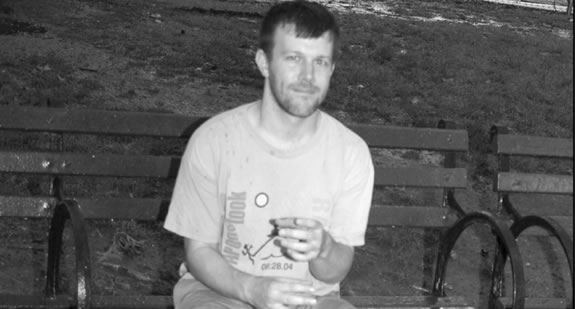By Gabriel Zucker
Washington Square was one of Bob Dylan’s favorite spots for playing folk music in the 1960s. But the times they are a-changin’, as saxophonist Justin Wood recently discovered when he tried to play his saxophone in the park.
At about 9 in the morning on June 17, Wood stopped in the park to practice for an hour on his way to work. After Wood had spent roughly 20 minutes playing on a bench located halfway between the park’s chess tables and the dog run, a Park Enforcement Patrol officer told him that he needed a permit to play music in the park.
“I said I wasn’t aware of that,” recounted Wood, speaking several days later. “I was aware I would need one for amplified music, but not acoustic.” He was also told, however, that playing a musical instrument is only allowed on the park’s eastern side, although even then he would technically still need a permit and the park’s manager might later make him leave.
Wood moved to the park’s east side and played sax for another 15 minutes before going to work.
Parks Department policy mandates that musicians need a permit to play amplified music, but typically no permit is required for acoustic music, especially in Washington Square, where informal jam sessions are a tradition.
In a statement, the Parks Department said that Wood was asked to move to a “more central location within the park” as a “quality of life measure” since he had been playing before 9 a.m. “Patrons are allowed to play acoustic music in the park without a permit, but we ask that they be respectful of the residential community in early morning and evening hours,” said the statement.
However, a PEP officer on duty last week said the decision had been made to move musicians from the park’s western to its eastern side since the construction work for the park’s renovation made the western side “more resonant.” Yet, the area where Wood was blowing his horn was not an official “quiet zone” since there were no signs posted stating the rules.
Cristina DeLuca, a Parks spokesperson, said in an e-mail, though, that as far as she knew, “We don’t have any new noise policy.”
The changes were made, the PEP officer said, because “people have been complaining” about noise on the park’s western edge. Musicians — he couldn’t say how many — have been given warnings, he noted.
The officer also said that musicians are typically stopped from playing at all after 10 p.m. and before 8 a.m. The park closes at midnight.
The park’s music policy didn’t disturb former Mayor Ed Koch, who fought for the rights of folk singers in 1961 when the then-Parks commissioner attempted to ban them from Washington Square Park.
“A park is for different purposes,” Koch said. “There’s nothing wrong with it — that is, so long, as there is a place for the traditional folk singing to take place.”
Koch said losing the musicians in the park would be losing “a part of the history.”
“I have no fear, because I know Mayor Bloomberg and I know the [Parks] commissioner, Adrian Benepe, and they’re not going to do anything that doesn’t protect the rights of everyone,” Koch assured. “And that includes the right to sing.”
In addition to supporting the rights of musicians, Koch — who lives on Washington Square — stongly supported the park renovation project.
Still, to some, the policy was unclear, not to mention unwelcome. Sharon Woolums, a public member of Community Board 2’s Parks Committee, who reported Wood’s experience to The Villager, called the officer’s actions “ridiculous.” She said she understood why large bands that “dominate” the park needed permits, “but one guy playing by himself — that didn’t make sense to me.”
Wood, too, questioned the logic of the warning he received, given that he was “not more than 30 or 40 feet away from the construction, which is far louder than I was.” He also said that he routinely plays in other parks in the city and has never had a similar incident. He noted, however, that the open part of the western side of the park was quite small due to the construction, meaning that the policy may have a limited impact.
Saying she saw a pattern, Woolums likened the saxophonist’s censuring to the “No Loitering” signs that the department posted around the chess tables a few months ago; Parks has since taped over the “No Loitering” provision on the signs. Woolums suggested that New York University — whose president, John Sexton, lives at MacDougal and W. Fourth Sts. — might be behind the warnings.
N.Y.U. spokesman John Beckman, however, said he had not heard of any incidents like Wood’s and was unaware of any policy banning playing music on the park’s western side.
Understandably, musicians won’t take kindly to limits being put on the space where they are allowed to play in the park. The PEP officer said he, too, understood the importance of music in the park.
“This is the cultural heart of the Village,” he said. “All the musicians come down here to play.” But, early in the morning, he said, “not as a music critic — it’s just noise.”




































